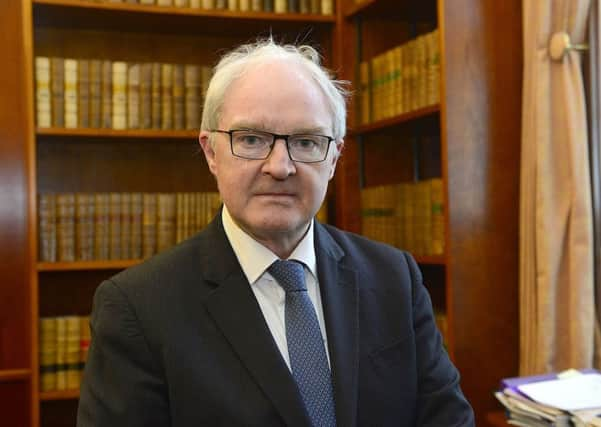Top judge: ‘I do not hold political view on how to approach Northern Ireland’s troubled past, my obligation is to the rule of law’


Sir Declan Morgan, in an interview with the News Letter today, said that his calls for funding for so-called legacy inquests, seized on by Sinn Fein, was a function of him being put in charge of coroners in 2015.
“I was conscious that there would be a perception that I had formed a political view about how issues of the past should be dealt with. I have tried – I think probably it’s difficult in this society to do this successfully – to make it clear that I hold the office of lord chief justice, my obligations are to support the rule of law.”
Advertisement
Hide AdAdvertisement
Hide Ad“Unfortunately,” he adds, “political parties will use things that I do or say to support whatever political cause they think it will actually help with”.
Sir Declan, who has been in post for almost a decade, reiterates that he has to operate with the law and the legal requirements as they are now.
If politicians feel that is not “then it was their responsibility to think about how the law should be changed”.
In recognition of the many victims of terrorism violence who feel that their needs are not being met, amid a heavy scrutiny on killings by security forces, including in the legacy inquests, Sir Declan says that inquest/inquiries were not the only way to proceed.
Advertisement
Hide AdAdvertisement
Hide Ad“There are myriad different ways in which one could have attempted to satisfy the Art 2 requirements in Northern Ireland in conjunction with all of the other victims who have been left without a commitment for so many years as to how their interests are to be protected.”
• The interview is in the weekend print edition of the paper, and will be put online at a later stage.